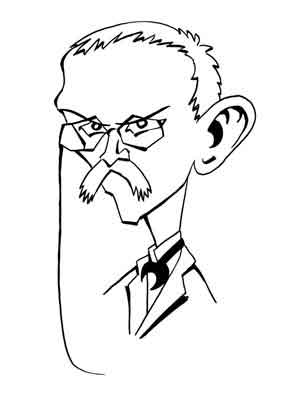David Hilbert

David Hilbert was in many ways the mathematician of the late nineteenth and - because of his longevity - up to the mid-twentieth century. One of his greatest (and most useful) inventions was the mathematics of the - what else - "Hilbert Space". Although a book on Hilbert space looks formidable to the mathematically challenged, the concepts are basic and fundamental to describing the real and natural world. It was the rather rascally Johnny Von Neumann (and others) who showed that equations of Hilbert spaces let you put the intricacies of quantum mechanics into the nice simple formulism that masks its intricacies.
But in many ways it was David's main failure that will ensure his immortality. David and his students decided to undertake a massive project to prove that all mathematics was consistent, and all mathematical truths could be proven from the basic axioms. But then Kurt Godel beat David to the punch. First in 1930 Kurt proved that predicate calculus - the basic method of manipulating logical and mathematical equations - was both and consistent and complete. That is, there were no contradictions, and everything that was true could be proven. Then a year later Kurt totally blew David and the rest of the "Hilbert School" out of the water by proving that the system of logic used to construct the equations - provided it was both "rich" enough to deduce the system of arithmetic - was either inconsistent or incomplete - that is, there were indeed mathematical expressions that were true, but had no formal proof within the system that generated them.
Well, that's the way it goes.